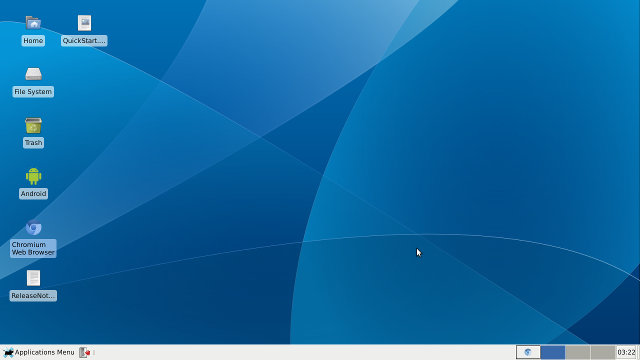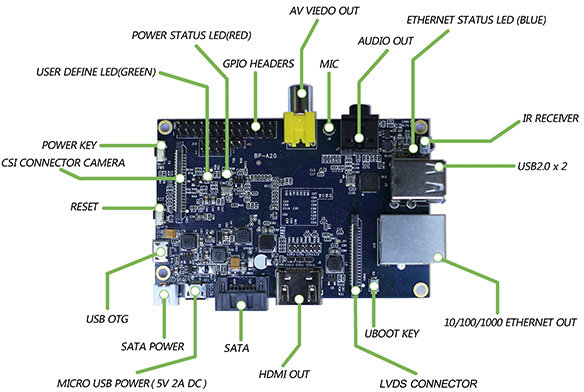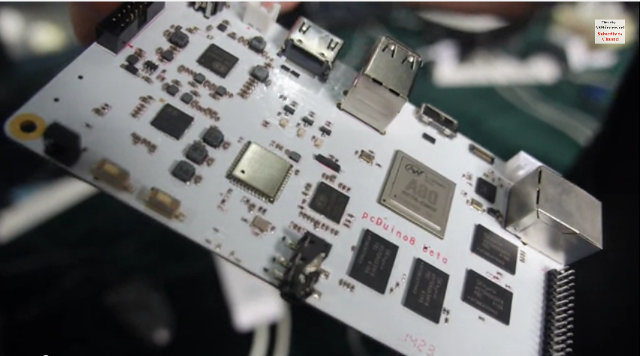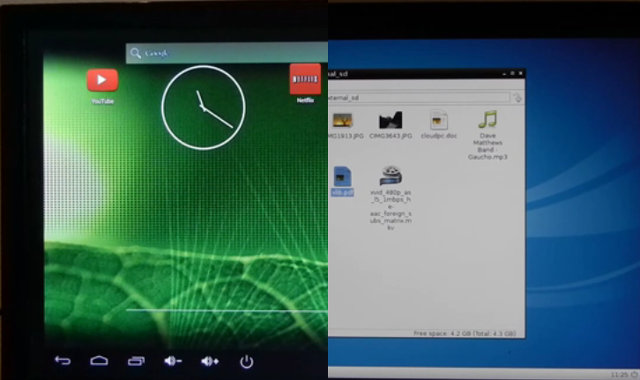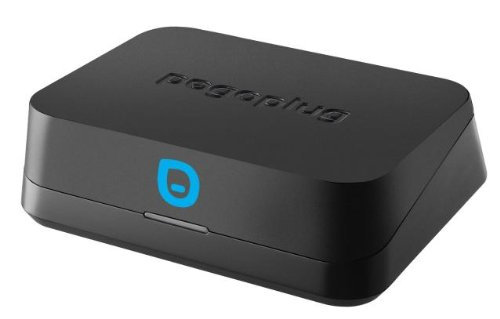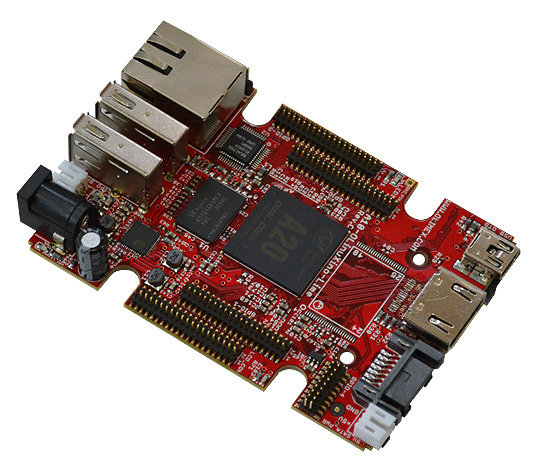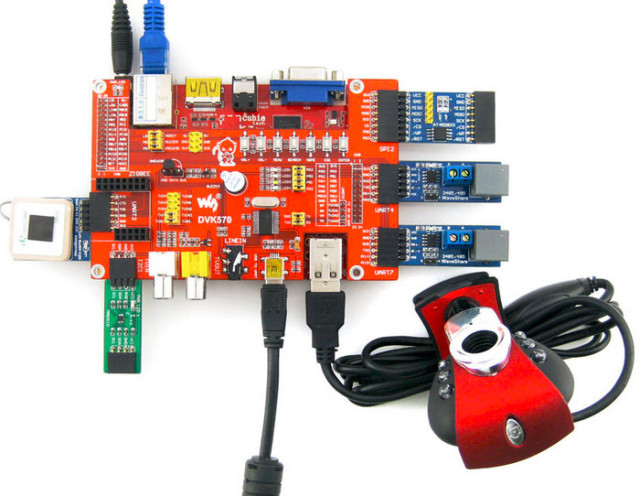Earlier this week, I wrote about VolksPC mini PC running Debian and Android simultaneously, and the developers decided to send me a unit for testing. The hardware I received is the popular MK808 mini PC based on Rockchip RK3066 with 1Gb RAM, and 8 GB RAM, but loaded with MicroXwin unified distribution. MicroXwin is an implementation of Windows X that’s not using a client/server protocol, for instead communicates directly with the drivers for better performance, especially on low-end hardware. I connected MK808 to my HDMI TV, added a USB hub to connect a USB keyboard as well as Mele Air Mouse, and powered up the device. The boot to Debian takes about 30 seconds, and 50 seconds for Android. As you boot it will enter in Debian with XFCE desktop environment, and you’ll notice two files, namely the Quick Start Guide and Release Notes that explain how to get started […]
Lemaker.org is Giving Away Banana Pi Development Boards to Developers and Fans
Banana Pi is a development board powered by AllWinner A20 dual core SoC with 1GB RAM, and with expansion headers and a form factor very similar to the Raspberry Pi. It can run Debian, Lubuntu, Android 4.2, Arch Linux ARM, Scratch OS, and OpenSuse, but Lemarker.org community would like more educational materials such as open source software or hardware projects, tutorials, etc.., so they’ve launched a program to give away boards to developers and people who can help writing and maintaining documentation. There are three categories of projects: STEAM – “Science, Technology, Engineering, Art & Mathematics” educational, open source projects running on the the Banana Pi Hardware or Software Project – Open source projects based on Banana Pi which could be helpful to the community, including open source hardware peripherals projects; Banana Pi Fans – You don’t need to be as technical as for the two others categories, but you […]
PcDuino8 Octa-core Development Board Revealed (Video)
Two AllWinner A80 powered development boards are currently expected. We’ve already seen some pictures of the Cubieboard8, and today we can gt more details about PcDuino8 development board thanks to Charbax who visited Linksprite, and interviewed the company. Here are PcDuino8 (Beta) specifications based on the interview and pictures: SoC – AllWinner A80 octa core big.LITTLE processor with 4 ARM Cortex A15 cores, 4 Cortex A7 cores, and Imagination PowerVR G6200 GPU System Memory – 1GB Storage – 4GB flash + micro SD Card slot Video Output – HDMI Audio Output – HDMI, stereo audio jack Connectivity – Gigabit Ethernet, Wi-Fi 802.11 b/g/n + Bluetooth 4.0 (AP6330 module) USB – 2x USB 2.0 host ports, 1x Micro-B USB 3.0 port Debugging – 14-pin header for JTAG Expansion Header – 32-pin header Misc – IR receiver Power – Round DC power jack (5V?) The hardware specs are a bit lower compared […]
VolksPC mini PC runs Debian and Android Simultaneously Thanks to MicroXwin Framework
It’s been possible to run Linux or Android on ARM based board and producs for a while, with some firmware providing dual boot support, or even simultaneous use running a chroot with a VNC server and client combination. Some developers have come up MicroXwin, a X-windows implementation using a custom Xlib library that communicate directly with the graphics drivers, and not using a client/server implement. This provides much faster performance compare to X11, as shown on Raspberry Pi and Cubieboard2 development boards, and it has given them the ability to run Debian LXDE and Android Jelly Bean simultaneously on their upcoming VolksPC, a mini PC based on Rockchip RK3066 with 16GB flash. The first VolksPC will have the following specifications: SoC – Rockchip RK3066 dual core ARM Cortex A9 CPU @ 1.4Ghz with Mali-400MP4 GPU System Memory – 1 GB DDR3 Storage – 16 GB NAND flash + SD/MMC/MS card […]
The World’s Cheapest Linux Computer? Pogoplug Mobile Now Sells for $7
Somebody asked “Anyone knows a computer cheaper than a Raspberry Pi with a network interface?” on Google+ mini PCs community. Some OpenWRT routers such as TPLink WR703N selling for about $20, or the VoCore Wi-Fi module selling for about the same price (Wi-Fi only) were parts of the answers, and I also mentioned some HDMI TV dongles that now sell for around $35, which is still a little cheaper than the Raspberry Pi model B when one considers shipping. But I found the answer by dhead666 particularly interesting: Pogoplug Mobile goes for 7$ on Amazon and that includes psu and network cable. It run Linux great (I’m using Arch) but you will want to have a ttl-usb cable and soldering iron available in case you manage to mess u-boot (go to the doozan’s forums for more info about the u-boot). Let’s have a look. Pogoplug Mobile is not a new […]
33 Euros Olimex A20-OLinuXino-LIME Open Source Hardware Board Supports Linux and Android
Last year, Olimex launched A10-OLinuxXino-LIME powered by AllWinner A10, and it became quite popular due to its Linux and Android support, its open source hardware, and a price tag of just 30 Euros that made it cost competitive with BeagleBone Black and Raspberry Pi boards. The company has now designed an upgrade with A20-OLinuXino-LIME powered by AllWinner A20 dual core Cortex A7 processor, that sells for just 3 Euros more. A20-OLinuXino-LIME specifications: SoC – AllWinner A20 dual core ARM Cortex-A7 @ 1GHz with Mali-400MP2 GPU System Memory – 512MB DDR3 Storage – microSD card slot, SATA, and optional 4GB NAND Flash Video Output – HDMI 1080p USB – USB-OTG + 2x USB Hosts Connectivity – 10/100Mbit Ethernet Expansions – 200 GPIOs on 0.05″ connectors Misc – Lipo battery management and connector, buttons Power – 5V Dimensions – 84 x 60 mm The specifications are exactly the same expect for the […]
CubieTruck’s DVK570 Daughter Board and Add-ons (GPS, Zigbee, Sensors, RS485, and SPI Flash)
CubieTruck is one of the development boards made by CubieTech. It is powered by AllWinner A20 with 2GB RAM, Gb Eternet, various ports, and supports Android and multiple Linux distributions. Waveshare Electronics has just launched DVK570 daughter board for the CubieTruck which adds support for TV in and out, a buzzer, and headers to connect modules such as GPS, RS485, an SPI flash, a Zigbee module, a magnetometer, or a temperature sensor. Hardware features of DVK570 daughter board: CubieTruck Headers – 1x 30-pin header and 1x 24-pin header for connection with the CubieTruck Video – TVIN in, and TV Out interfaces (CVBS) Audio – 3.5mm Line IN interface Debugging – UART interface, micro USB port with USB to UART chip (Profilic PL2303) Expansions for add-on modules: 1x 4-pin I2C interface to connect I2C modules such as PCF8563 RTC Module, MAG3110 Board, and more 2x 6-pin UART interfaces (UART4 and 7) […]
Raspberry Pi Compute Module Development Kit Is Now Available for $200
The Raspberry Pi foundation announced a computer-on-module which they called the (Raspberry Pi) Compute Module that will be mostly software compatible with the Raspberry Pi board, and sell for $30 in quantities. They have now announced the availability of the development kit that includes a baseboard (called Compute IO board), display & camera adapter boards, as well as a 5V power adapter, jumper wires, and a USB cable. As a reminder the Compute Module has the following hardware specifications: SoC – Broadcom BCM2835 ARM 11 processor @ 700 MHz with Videocore IV GPU System Memory – 512MB RAM Storage – 4GB eMMC Flash SoM Connector – DDR2 200-pins SODIMM Dimensions – 67.6x30mm board which fits into a standard DDR2 SODIMM connector The Compute IO Board come with two micro USB connectors (one reserved for power), a USB 2.0 host port, two DSI ports for display, two CSI ports for a […]


